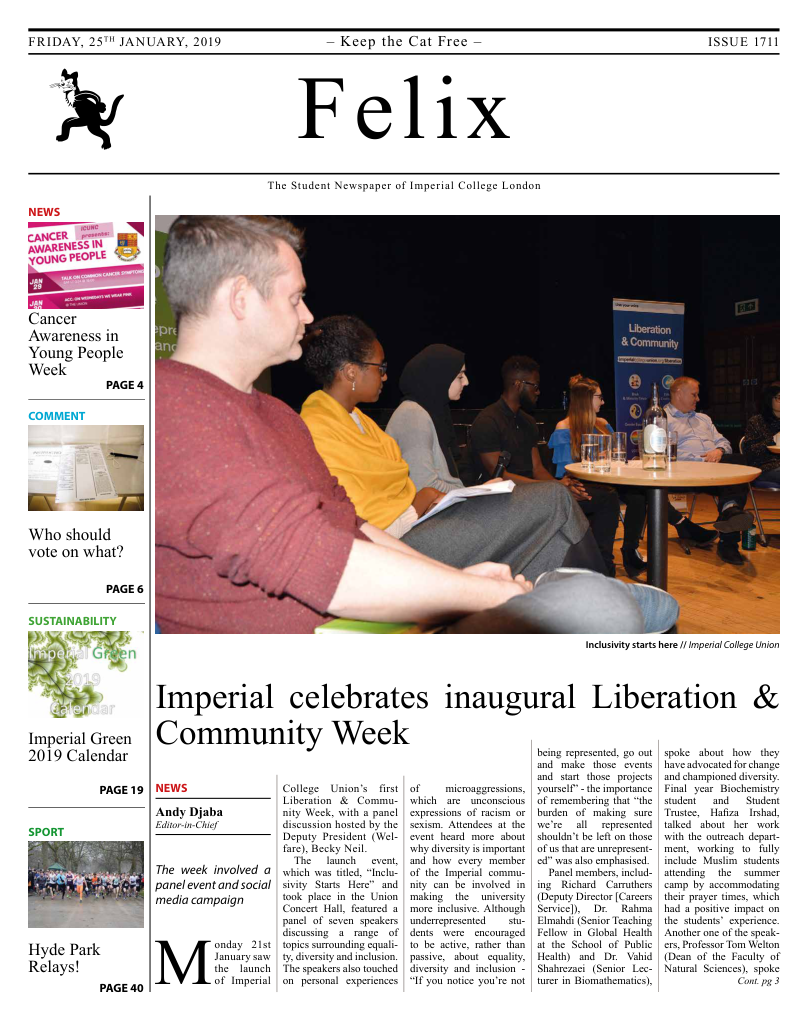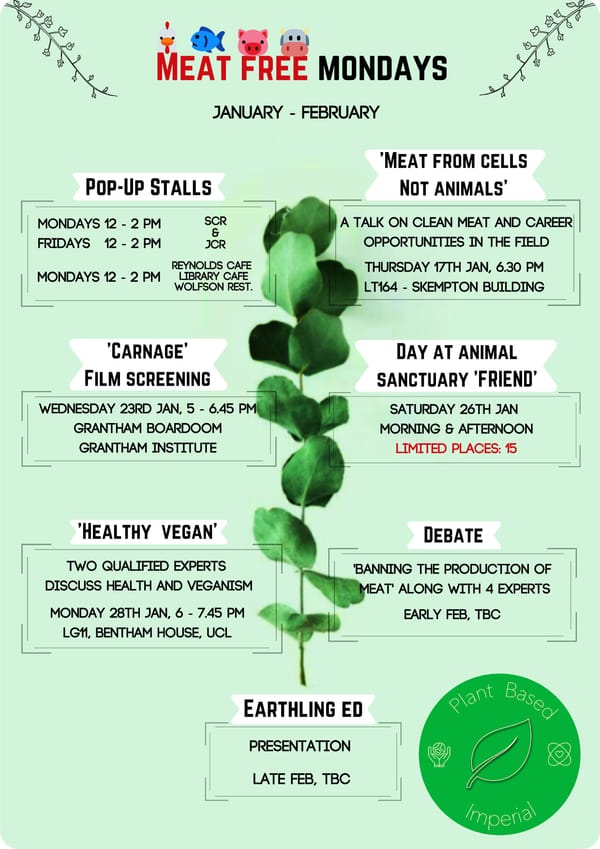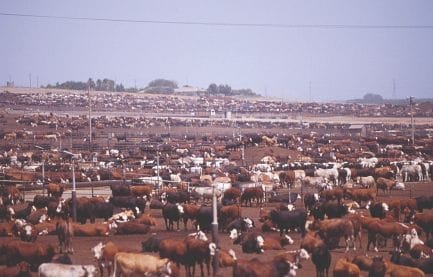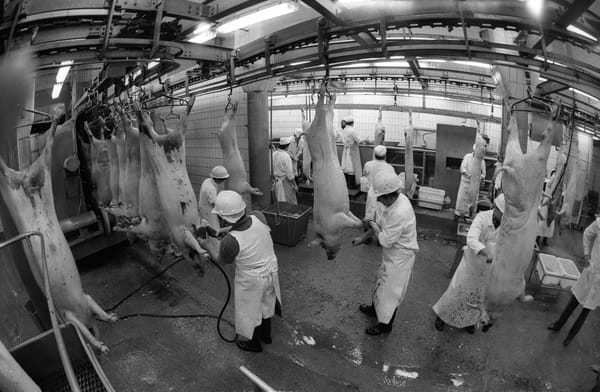2018: A big year for the vegan movement
Film screening of VEGAN 2018 by APES, ESoc and Vegsoc gives food for thought
Last Tuesday (15th of January), Environmental Society, VegSoc and APES collaborated to host a movie screening event for the film VEGAN 2018. Out of curiosity I attended. I came out of it feeling a mixture of emotions - partly overwhelmed by the density of the information, partly empowered to know that I could immediately start making small changes in my own lifestyle, and partly regretting that I hadn’t attended more movie screenings like these.
VEGAN 2018 introduced various aspects of the explosive growth in veganism last year. An increasing percentage of people have begun to cut out meat from their diets and gradually incorporate more environmentally friendly ways of eating. In fact, especially around this time of the year, people may be participating in Veganuary - an event launched to encourage eating a plant-based diet just for one month. The January of 2018 broke new records with an estimated 167 000 people taking part, grabbing a lot of attention from the media. In the US, a company called ‘Beyond Meat’ carried out extensive research on product development of plant-based meat patties - in some regions of Southern California their products were outselling actual meat patties. London is also a growing hub for vegetarian/vegan diets, with vegetarian options available in most restaurants, and entire sections of major stores such as Tesco and Sainsbury’s dedicated to vegan/vegetarian meals. There is expanding research and development in producing meat-free, ‘mock meat’ products which could help society transition more easily into a plant-based lifestyle. The global trend towards increasing awareness of veganism, combined with influencers (including athletes and celebrities) promoting a plant-based diet meant many businesses began to view this as an opportunity to incorporate it as part of their products. 2018 saw a significant improvement in the way mainstream industries began to take up veganism.
However, the film is perhaps overzealous when talking about the imminent rise in veganism. Coming from an Asian background, I am also aware that the spread of veganism in the UK and US is certainly not representative of the entire world. Countries such as China, Japan and many parts of South East Asia still eat meat as a predominant proportion of their meals. Vegetarian/ vegan options are definitely not as readily available as it is in London. Therefore, it is important to acknowledge that there is still a long way to go in terms of a global shift towards plant-based eating, that will take many more years.
Nonetheless, getting the opportunity to watch this film undoubtedly made me more aware that every time we have a meal, we are making a choice - and for people to make a choice, they must be properly informed. Film screenings like these are an extremely approachable way to gain new knowledge so that we can make informed decisions that have the potential to help the environment. If you’re interested in attending future screenings, make sure to keep up with the Environmental society on Facebook/Instagram, so as not to miss out on other free events.
Felix Sustainability is looking for articles. If you would like to write email artur.donaldson@ic.ac.uk








